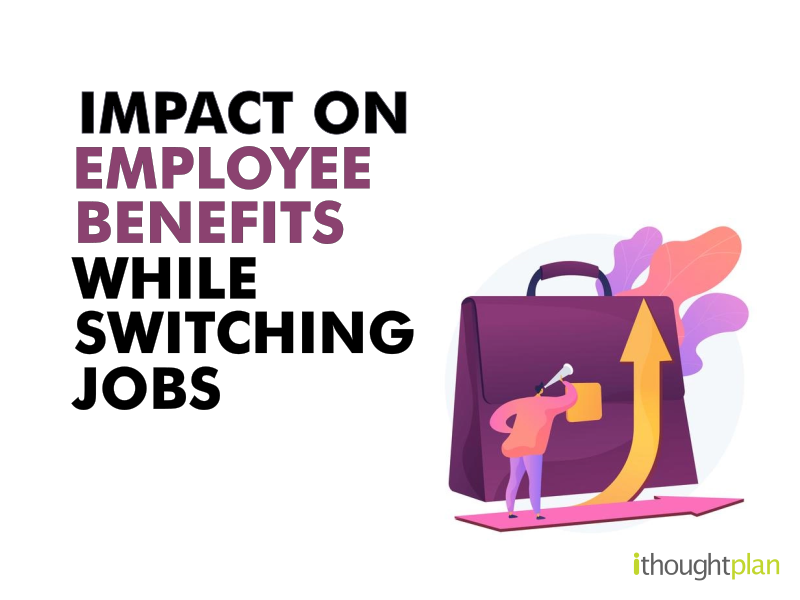
The first question most people ask when they hear someone got a new job offer is, how much is the package? While salary is the most important, there are other factors you might not immediately consider – benefits and potential financial consequences of leaving your present employer.
These job transitions can be a whirlwind, both exciting and daunting at the same time. Many questions come to our mind when we plan to change jobs,
-
-
- What happens to my health insurance?
- Can my Provident fund be transferred to the new employer?
- What is the impact on tax?
-
Once you leave a job, you and your former employer stop contributing to your retirement account with that firm, and you will likely have options for how to keep those funds. Let us look into the list mentioned below:
Provident Fund
Transferring your Employees’ Provident Fund (EPF) account from your old employer to your current employer can be done online and offline. At present, the subscribers of the EPFO are required to file transfer of EPF claims on changing jobs. The subscriber has to file an online claim through the activated UAN to get credits of EPF contributions made during his or her previous job.
Taxability of Provident Fund:
a) If you have completed five years of contribution to your EPF during your entire employment tenor, then withdrawing PF money will be tax-free as per the Income-tax Act, 1961.
b) If you have not completed five years of contribution to your EPF, then it is advisable to transfer your EPF to the new employer. It is advisable to transfer your EPF as well as Employees’ Pension Scheme (EPS) money when you change your job.
Superannuation Fund
Your employer contributes every year on your behalf towards the group superannuation policy held by the employer. The employee on resignation from his job can either withdraw his entire superannuation fund or choose the annuity option.
If an employee resigns from a company and moves to another company, he can transfer his superannuation fund to the new company if the new company is having approved the superannuation fund. Superannuation withdrawal on resignation in India can happen only in case, the new company does not provide this facility. In such a case, the employee can withdraw the amount with necessary taxes applicable or retain the amount in the fund till retirement.
Taxability of Superannuation Fund:
At the time of job change, any amount withdrawn is taxable under the head Income from other sources.
Gratuity
Gratuity is payable only on resignation, superannuation, or death of an employee, after completion of the requisite term. Gratuity is payable to an employee when an employee leaves employment after completing at least five years in service with an employer. The taxation rule for gratuity remains the same irrespective of resignation or job change.
Taxability of Gratuity:
Calculation of the amount of gratuity exempted from tax. The least of the following is exempt from tax:
1. Last salary (basic + DA) *number of years of employment* 15/26;
2. Rs. 20 lakhs (which has been hiked from Rs. 10 Lakh as per the amendment);
3. Gratuity actually received
ESOPs
We would recommend not leave a lot of value on the table if you have worked hard to earn incentives. If your current employer gave you employee stock ownership plans (Esops), understand whether you are eligible to encash these at all. If you are giving up a lot of value because not all your shares have been invested, you might want to ask your new employer to offer you a similar upside as an incentive to move to the new job.
Please refer to our blog on all-you-need-to-know-ESOP for more details.
Insurance
If your current employer was offering you and your family life and health insurance coverage, recognize that you might need this from your new employer as well. Do not remain uninsured during the transition period from one job to another. Accidents and emergencies come unannounced. Don’t put yourself or your family at risk by not having appropriate insurance coverage.
There are so many factors to consider when you are making a career pivot, but the most important is whether your move is financially viable. In fact, as with all big life changes, switching jobs can be a convenient time to review and update all of your financial plans. Please get in touch with us to know more.